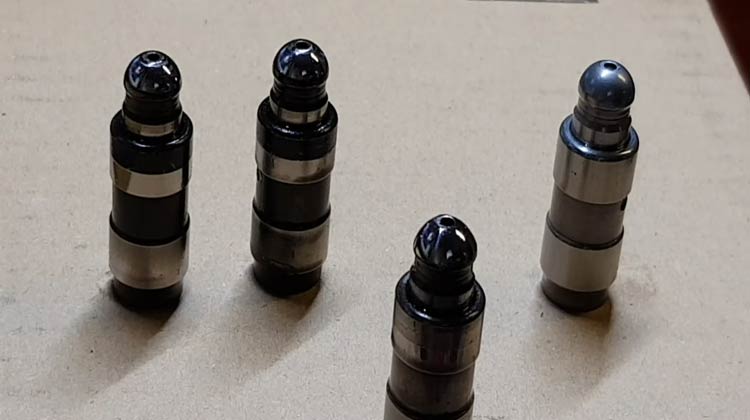If you’re experiencing problems with your car, it’s important to troubleshoot and identify the issue so that you can get it fixed. One common problem that many drivers experience is faulty hydraulic lifters. In this guide, I will discuss the symptoms of a faulty hydraulic lifter so that you can identify it if it’s happening to your car. I will also provide some tips on how to fix the problem if it does occur.
Hydraulic Lifter:
A hydraulic lifter is a component in your car’s engine that helps to push the valves up and down. The hydraulic lifter uses oil pressure to function properly. When the hydraulic lifter goes bad, it can cause several problems with your car’s engine.
Symptoms of a Faulty Hydraulic Lifter: Depth Analysis
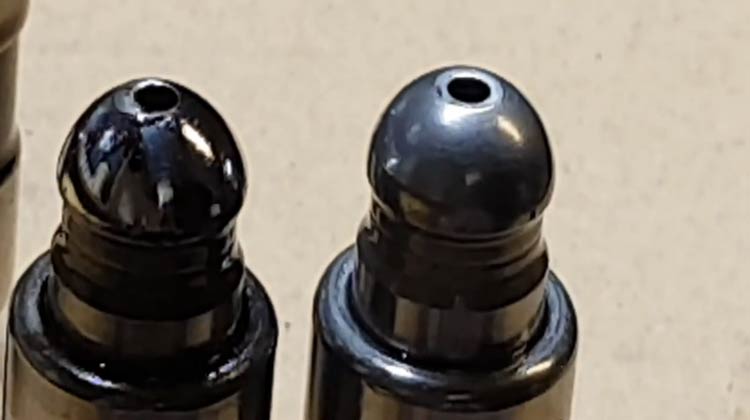
To the average driver, the inner components of their car are a complete mystery. As you begin to discuss more technical pieces located inside the engine, that only gets truer. Nevertheless, those less-known parts matter just as much as their better-known counterparts and if they start to fail you’re going to be fully aware.
A telltale sign of a faulty hydraulic lifter is an engine that misfires while idling or during acceleration, accompanied by increased engine noise. In many cases, this also triggers the check engine light on your dashboard.
Even though hydraulic lifters are a technical component that you don’t see, they can still break. Hydraulic lifters wear out over time, and when this happens, it creates major issues. Listed below are the more common signs that indicate a bad hydraulic lifter:
- Engine Misfires
- Excessive Noise from Engine
- Dead Cylinder and Faulty Pushrods
- Check Engine Light On
- Sticky Lifters
Engine Misfires:
The hydraulic lifters support the pushrods (In some car models), connecting them to the rocker’s arms, which then open and close the intake and exhaust valves. So, if there’s something wrong with the hydraulic lifter, it won’t allow your exhaust or intake valves to open or close at appropriate times.
An engine misfire is caused by a lack of combustion and will present itself with an altered sound and decreased performance. If you believe your engine is experiencing misfires, take it to a repair shop right away to prevent further damage.
Excessive Noise from Engine:
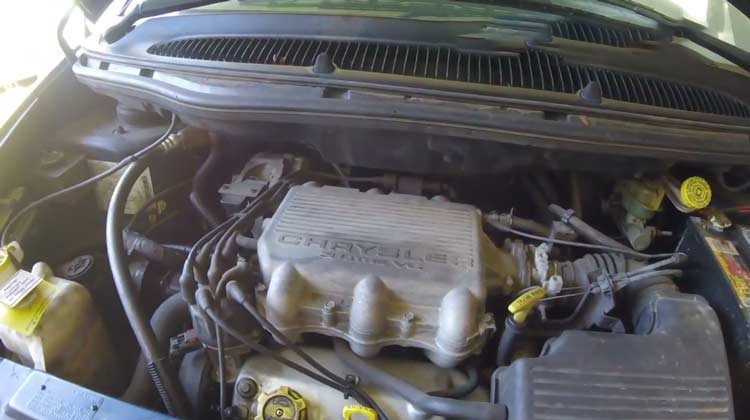
One of the most noticeable signs of a bad hydraulic lifter is an excessively noisy engine. If you hear tapping, clicking, or knocking noises coming from your engine, the hydraulic lifters likely are to blame.
When one of your car’s hydraulic lifters is defective, you’ll be able to pick up on it right away. The grating sound of metal rubbing against each other will be noticeable, as well as the noise coming from the internals of the hydraulic lifter itself.
As you increase your vehicle’s speed, the sounds will become louder and more frequent. This is because the lifter is trying to actuate faster than it actually can.
Dead Cylinder and Faulty Pushrods:
If your car engine is an overhead valve engine, it has pushrods that connect the camshaft and the intake or exhaust valve. These can break down if your hydraulic lifter needs replaced. The lift cylinder is in your engine so the pushrod gets pushed evenly every time. If your hydraulic lift cylinder is damaged, it’s not surprising for the pushrods to become twisted or broken as well.
When this occurs, not only will you have an exhaust valve or intake valve working sub-optimally, but one that stops functioning entirely. This is called a “dead cylinder,” and you’ll notice reduced performance.
Furthermore, you’ll notice that your engine will sound abnormal. If you have a dead cylinder, get it fixed as soon as possible. It’s not simply about returning your engine’s horsepower to normal. If you don’t fix a dead cylinder. Eventually, you will cause more irreversible damage to the engine.
Check Engine Light On:
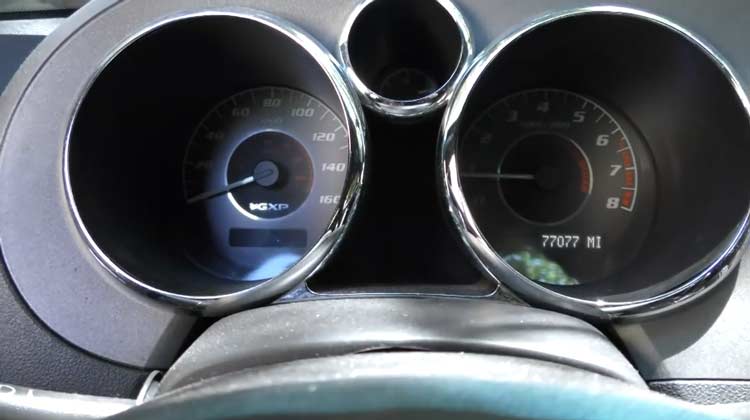
Your engine is densely populated with sensors. They track the temperature, air composition, and volume entering your engine as well as exhaust fumes. Your car is like a machine that needs to be kept in pristine condition and for that, you need all the information you can get.
Therefore, if something seems to be off with your vehicle, it’s most likely due to a malfunctioning sensor. You might get multiple warning lights if there’s an issue with your hydraulic lift cylinder, but you’ll see the check engine light come on. There are many reasons to turn on the check engine light, but a faulty hydraulic lifter is one of them.
If your check engine light is on and you’re experiencing any of the other issues mentioned in this article, you likely have a defective hydraulic lifter. I recommend taking your car to a mechanic as soon as possible to get it checked out.
At the end of the day, it’s better to be safe than sorry. A faulty hydraulic lifter is a serious issue that can cause extensive damage to your engine if left unchecked. Be sure to keep an eye out for the signs and get it fixed as soon as possible!
Sticky Lifters:
If your lifters are sticking, it’ll cause the valves to open and close at the wrong time. This will result in a loss of performance as well as fuel economy. Not to mention, it’ll make your engine sound terrible.
A sticky lifter refers to a collapsed lifter that doesn’t move. When the system is unable to maintain oil pressure, it will also lead to the generation of more noise from the lifter’s internal parts hammering against one another.
You can usually tell if your lifters are sticking by the noise they make. It’ll be a tapping noise that’s similar to the sound of metal on metal. The best way to fix this issue is to take your car to a mechanic and have them replace the lifters.
If you want to try and fix it yourself, you can add a hydraulic lifter additive to your oil. This will sometimes free up the sticking lifters.
The Reason for Failing A Hydraulic Lifter:
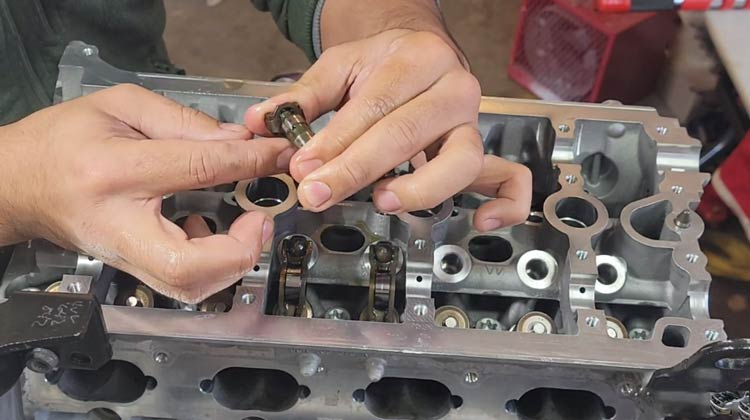
The most common reason for a hydraulic lifter to fail is a loss of oil pressure. This can be caused by many different things such as a faulty oil pump, blocked oil passages, or wear on the engine itself.
- If your engine is low on oil, it won’t be able to lubricate the hydraulic lifters properly. This will cause them to fail. Make sure you check your oil level regularly and top it off if necessary.
- Another reason for a hydraulic lifter to fail is due to contaminants in the oil. If there’s dirt or debris in your oil, it can damage the lifter and cause it to fail. Be sure to change your oil regularly and use a good-quality oil filter.
- Finally, a hydraulic lifter can also fail due to simple wear and tear. Over time, the parts of the lifter will start to wear out and break down. This is why it’s important to change your oil regularly and keep up with maintenance on your engine.
Tips for Quieting the Noisy Lifters:
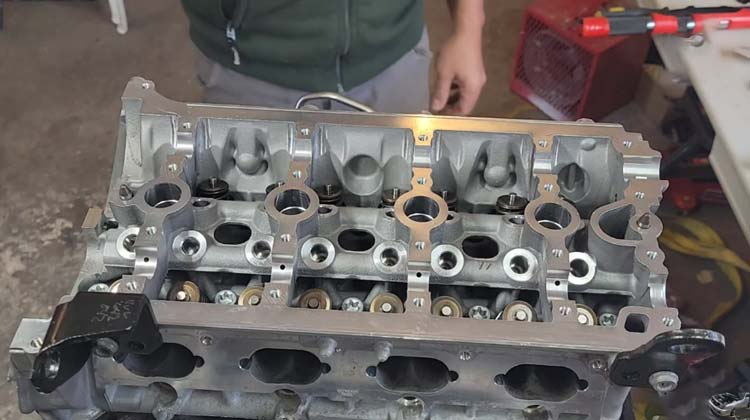
If your lifters are noisy, there are a few things you can do to try and quiet them down.
Change Oil Regularly:
One of the best ways to keep your lifters quiet is by changing your oil regularly. This will ensure that there’s enough clean oil circulating through your engine and keep everything lubricated. I would recommend changing your oil every 3000 to 5000 miles, or every few months, whichever comes first.
Add Hydraulic Lifter Additive:
If your lifters are already noisy, you can try adding a hydraulic lifter additive to your oil. This will sometimes free up the sticking lifters and quiet them down.
Replace the Lifters:
If neither of those options worked, then you’ll likely have to replace the lifters. This is a more involved fix, so I would recommend taking your car to a mechanic.
Noisy lifters can be annoying, but fortunately, there are a few things you can do to try and quiet them down. Be sure to change your oil regularly and add a hydraulic lifter additive if needed. If those options don’t work, then you’ll likely have to replace the lifters.
Replacement Cost for a Faulty Hydraulic Lifter:
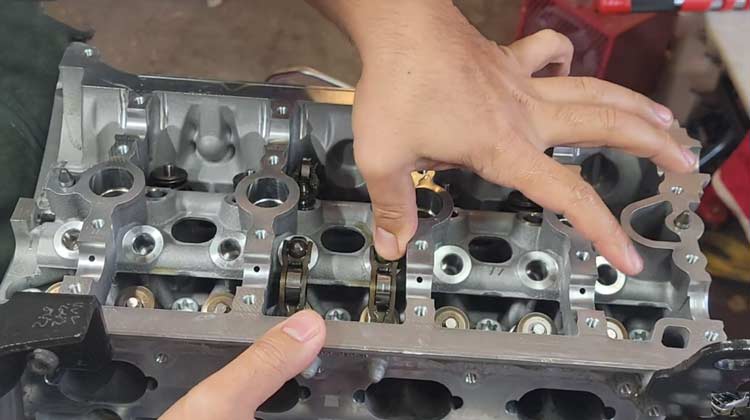
Depending on the car model and labor cost, replacing a single hydraulic lifter costs an average of $100 to $1000. A Hydraulic Lifter itself only costs$5 to $30, but the main bulk of the expense comes from labor, which is estimated at $100 to $1000.
Replacement hydraulic lifters are not only pricey but also a pain to get to. They range from $10-$40 each, and your engine has many of them. Therefore, it’s recommended that you replace all of them at once even though it is expensive.
Depending on the make and model of your car, it could have 8 to 24 lifters. This range in price means that parts for this engine repairs will cost you between $40 to $1,000.
The labor costs for replacing lifters can range from $200 to $600. On the lower end, you may be able to get the job done for under $400, but on the higher end, it could cost as much as $1,500. The average cost usually sits between $500 and $800.
FAQs:
Q: What causes hydraulic lifters to go bad?
A: Hydraulic lifters can go bad for several reasons. The most common cause is a loss of oil pressure, which can be caused by a variety of things such as a dirty oil filter or low oil levels. Other causes can include wear and tear, a build-up of sludge or debris, or an issue with the engine’s valvetrain.
Q: How do you fix hydraulic lifters?
A: The best way to fix hydraulic lifters is to take your car to a mechanic and have them replaced. If you want to try and fix it yourself, you can add a hydraulic lifter additive to your oil. This will sometimes free up the sticking lifters.
Q: How many hydraulic lifters are in a car?
A: Depending on the make and model of your car, it could have anywhere from eight to 24 hydraulic lifters. This range in price means that parts for this engine repairs will cost you between $40 to $1000.
Q: Can I drive with a faulty hydraulic lifter?
A: You can drive with a faulty hydraulic lifter, but it’s not recommended. A bad lifter can cause increased engine noise, reduced performance, and fuel economy as well as increased engine temperature. It’s best to take your car to a mechanic and have the lifters replaced.
Q: Can hydraulic lifters be cleaned?
A: Yes, hydraulic lifters can be cleaned, but it’s not recommended. When hydraulic lifters go bad, it’s usually because of a loss of oil pressure or a build-up of sludge or debris. These things can’t be fixed by simply cleaning the lifter. It’s best to replace them.
Q: How do hydraulic lifters work?
A: Hydraulic lifters work by using oil pressure to push a plunger up and down. This action opens and closes the valves in the engine, which allows air and fuel to enter the cylinders. Over time, hydraulic lifters can wear out, which can cause increased engine noise or reduced performance.
Conclusion:
Hydraulic lifters are an important part of your car’s engine, but they can be expensive to replace. Be sure to change your oil regularly and add a hydraulic lifter additive if needed. If those options don’t work, then you’ll likely have to replace the lifters. Depending on the make and model of your car, it could have eight to 24 lifters. This range in price means that parts for this engine repairs will cost you between $40 to $1000.
I hope that my guideline was informative and helped you understand a little bit more about hydraulic lifters. If you have any further questions about – Symptoms of a Faulty Hydraulic Lifter, feel free to ask in the comments below.
